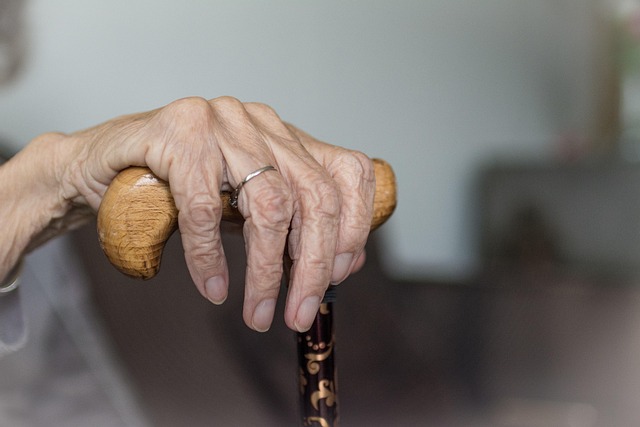Caregiving for the elderly, often handled by family members, is demanding and emotionally taxing, involving tasks from daily living assistance to companionship. As the population ages, the demand for Elderly Companion Services has increased, highlighting the need for comprehensive support systems. These services provide much-needed breaks for caregivers, offering meal prep, housework, and transportation assistance, while ensuring seniors maintain independence and dignity. By pairing companions with specific needs in mind, families can ease caregiving burdens and foster meaningful relationships.
“In today’s fast-paced world, elderly caregiving can pose significant challenges for families. Balancing work, personal life, and the demands of an aging relative can be a daunting task. This article explores the vital role of elderly companion services in providing much-needed relief to caregivers and families. We delve into the challenges of caregiving, the specific support offered by companion services, and the numerous benefits and considerations for those seeking assistance, ensuring a healthier and happier family dynamic.”
- Understanding Elderly Caregiving and its Challenges
- The Role of Companion Services in Providing Relief
- Benefits and Considerations for Families Seeking Support
Understanding Elderly Caregiving and its Challenges

Caregiving for the elderly can be a demanding and emotionally taxing responsibility, often undertaken by family members or close relatives. It involves a range of tasks, from assisting with daily living activities like bathing and dressing to providing companionship and ensuring their overall well-being. As the population ages, the demand for elderly companion services has been on the rise, highlighting the need for comprehensive support systems.
One of the primary challenges in elderly caregiving is managing the physical and cognitive decline that often accompanies aging. Caregivers must adapt to changing needs, from assisting with mobility issues to supporting memory retention. Additionally, the emotional burden can be significant, as caregivers navigate the complexities of providing end-of-life care or dealing with behavioral changes caused by age-related conditions.
The Role of Companion Services in Providing Relief

Elderly Companion Services play a vital role in providing much-needed relief for families caring for aging loved ones. These services offer a supportive presence, allowing primary caregivers to take breaks from their demanding responsibilities. By engaging with elderly individuals in a meaningful way, companions can help alleviate feelings of loneliness and isolation, which are common challenges faced by the elderly, especially when family members are heavily involved in their care.
In addition to companionship, Elderly Companion Services contribute to the overall well-being of the elderly by assisting with daily tasks, such as meal preparation, light housework, and transportation. This not only reduces the physical burden on caregivers but also enhances the quality of life for the seniors, enabling them to maintain their independence and dignity for longer periods.
Benefits and Considerations for Families Seeking Support

Families caring for elderly loved ones often face challenges, but seeking support through Elderly Companion Services can bring numerous benefits. These services provide a much-needed break for caregivers by offering professional assistance and companionship to the elderly. With dedicated companions, families can offload daily tasks such as meal preparation, transportation, and personal care, allowing them to focus on building meaningful relationships and spending quality time together.
When considering Elderly Companion Services, it’s essential to match the companion with the unique needs of both the caregiver and the elderly individual. Some services cater to specific age groups or medical conditions, ensuring a suitable and safe environment. Additionally, families should explore options that offer flexibility, allowing them to choose the level of support required and create a comfortable routine for their loved ones.
In conclusion, understanding the challenges of elderly caregiving and leveraging the benefits of companion services can significantly ease the burden on families. By providing emotional support, assistance with daily tasks, and companionship, these services not only improve the quality of life for seniors but also offer much-needed relief to caregivers. For families seeking support, elderly companion services represent a valuable resource that fosters a healthier, happier, and more sustainable caregiving experience.














